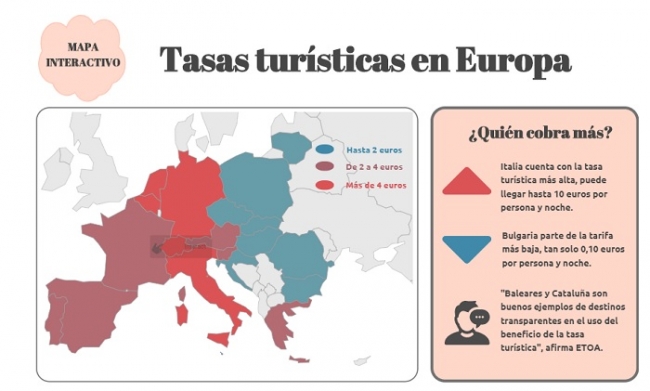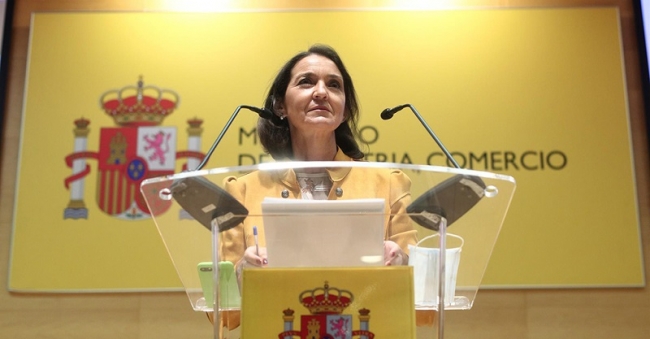
Country's image has not been damaged by the pandemic
The major European outbound markets (England, Germany, France and Italy) have confirmed that Spain continues to be a preferred destination and that its image has not been damaged by the effects of the pandemic, according to the round table discussion "The major European markets, prospects and situation", which took place during the Turespaña conference.
In addition, they all agreed on the "strong" desire on the part of tourists to travel and expressed their confidence that the recovery of tourist flows will begin gradually in spring if vaccination rates are optimal.
The issuing markets also concluded that when the vaccination campaigns progress and connectivity returns, tourists will return to Spain.
They also warned that there will be a change in demand when tourist flows recover and the sector must be prepared. Therefore, the new trends and demands following the pandemic must be reflected in the Spanish tourism offer, which represents an opportunity to develop new products.
United Kingdom: "An intense desire to travel".
The Councillor for Tourism in London, Javier Piñanes, pointed out that the British issuer is paralysed by the restrictions taken to prevent the spread of the coronavirus. However, he is hopeful that travel will resume as "there is an intense desire to travel on the part of the British and they stress that Spain is the destination they want to return to".
Piñanes said that the "tour operators want to restart operations at the end of March 2021, which is a first sign that there could be some movement at Easter".
Despite the fact that bookings are getting later and later, the Tourism Advisor in London has good prospects for summer 2021 as "the three big players JET2, TUI and EasyJet are already scheduling to Spanish destinations for this summer, winter 2021 and summer 2022".
However, he warned that the tourist flow needs to be parallel between the outbound and inbound markets because "if Spain is not in a positive situation in terms of controlling the pandemic and is still a country at risk, it is difficult for the movement of tourists to take place".
Finally, Piñanes is confident that in 2022 there will be a tourist movement "in conditions" and the 2019 figures will be reached in 2023. "As long as the circumstances are minimally favourable, British tourists will come out in droves, so the recovery will be faster than some people are predicting," he concludes.
Germany: more sustainable travel
Arturo Ortiz, Germany's tourism advisor, explained that 51% of Germans intend to travel this year, so despite the fact that the country is at its worst epidemiological moment, the intention to travel remains intact and Spain is the first object of desire in international travel, although purchases are delayed.
"The anticipation of bookings has changed; they used to be made in the first quarter of the year. Agency turnover has fallen by 85%, but it doesn't mean that they are not going to buy, only that they have delayed their purchases, which makes us moderately optimistic," he adds.
The packaged sun and beach product is and will continue to be what Germans are looking for and buying, but with an offer adapted to social changes, especially in terms of sustainability. For this reason, German tour operators have incorporated more independent accommodation formulas into their catalogues for 2021.
According to Ortiz, the most favourable prospects would be for Christmas, but always marked by school holidays, so that "the next horizon for recovery is the summer months, with school holidays of 6-4 weeks and an average duration of 11-12 days".
France's top international destination
Spain has become the number one international destination for France in 2020, given its geographical proximity and cross-border travel, explained Tatiana Martínez, Tourism Councillor in Paris. This is because "French tourists like to travel by car and 60% of them enter Spain by road".
Despite the fact that for the moment, the French are going to focus on domestic tourism, "more than 70% of them plan to travel internationally as soon as the health situation allows it and the decision factors will be their own vehicle, health safety, seeing a compulsory PCR as a good idea, and flexibility in the cancellation of bookings".
"French tourists will demand more sustainable, individual and inclusive trips, and will initially opt for local destinations," she explained.
According to the minister, "Spain has not lost its attractiveness or image" in this market. This means that in the last part of the year there has been a demand for Spain, which has translated into sales to the Canary Islands.
On the other hand, Martínez notes that neither the French public nor French professionals are negatively affected by the compulsory PCR test for travelling to Spain. "For public opinion, it is a health protection measure," he concludes.
Italy: summer revival
Over the last few years, Italy has consolidated its position as the fourth largest source market for tourists to Spain, with a continuous growth trend. However, with the pandemic, there has been a drastic drop, as the Italian government has asked its citizens to travel within their country, according to Isabel Garaña, Councillor for Tourism in Milan.
"Because of the significant restrictions on Italian mobility and the incentive of domestic tourism, the short-term forecasts are not good," she adds.
However, for Garaña there is a glimmer of hope because, according to data from the Italian Federation of Travel Agencies (Fiave), "destinations such as Spain could be reactivated in the summer, provided that the health situation evolves favourably", although she points out that "the real recovery in demand could begin in September".
As for travel trends to Spain, he points out that they are "trips to immerse oneself in the culture of the place, nature trips, adventure sports, cycling, trekking and trips that seek a total disconnection and long stays for smart-working (digital nomads)".
Reassurance in the face of Brexit
With regard to the official exit of the United Kingdom from the European Union in January 2021 and the entry into force of a new framework of relations, Javier Piñanes called for the tourism sector to remain calm because "the repercussions will be minimal".
"The big issues, which are the existence of direct flights and visa requirements, and other interim issues, are being resolved favourably," he said.
"Other issues such as health care we already know is guaranteed and the validation of driving licences will be recognised at least in the first half of the year. In addition, those travelling with a pet should also be reassured that a certificate will be required," he said.
The issue he is most concerned about is border control, which is why it is important to ensure "that it is not long and complicated for tourists".
As for a possible devaluation of the pound, Piñanes pointed out that "there would be a different scenario" because "there would be less spending capacity, less consumer confidence and even a reduction in stays".









